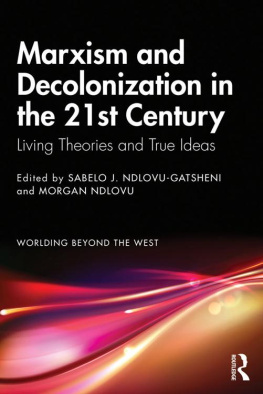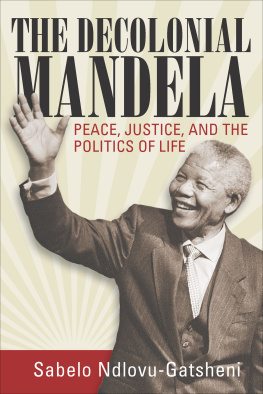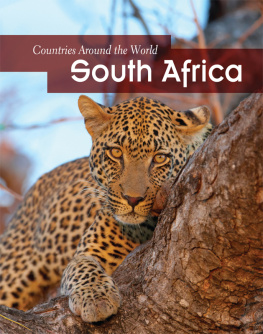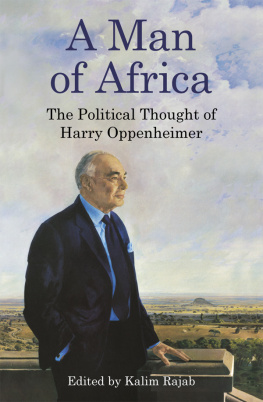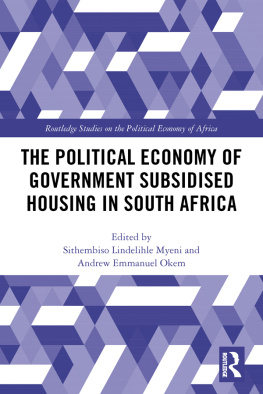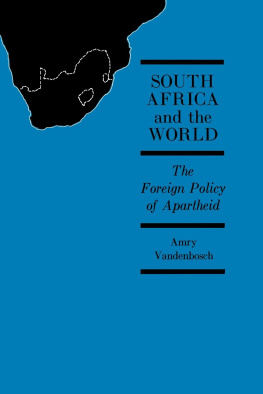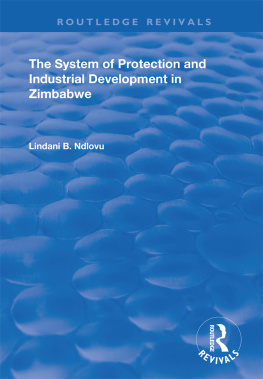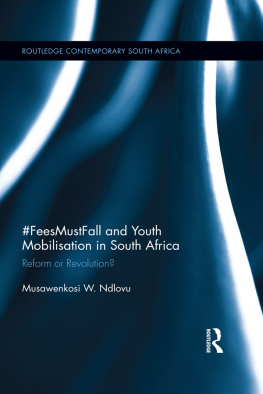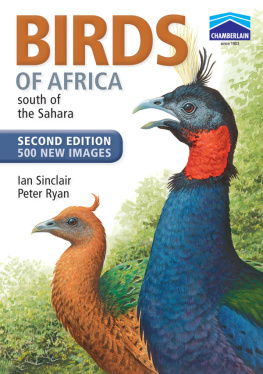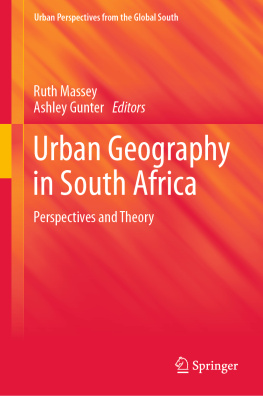This is a powerful compilation of perspectives that explores the complexities of South Africa. South Africa has a contested history, which exists in tandem with the deep fissures still present in society and a host of new dynamics to navigate. The Contested Idea of South Africa analyses these complexities through a critical lens and provides a valuable contribution to understanding the transformation to a post-colonial state and the struggles that inevitably arise from this. The contributions traverse the genealogy of South Africa, the various actors who have conceptualised the current notion of South Africa alongside concepts such as race, ethnicity, and gender, amongst others. This book is an important reflection on forging an identity within the confines of a contested state while positing tangible solutions.
Professor Tshilidzi Marwala, Principal and Vice-Chancellor, University of Johannesburg
This book is a timely scholarly contribution that illuminates the formation of racial identities as imagined communities in South Africa and dissects the role of ideas, intellectuals, and social movements in shaping or disrupting the project of identity formation. These collected essays are set against the conceptual frames of decoloniality. The authors place the idea of a South African nation under critical scrutiny, especially in light of the continuing patterns of white privilege and black cultural and economic exclusion.
Professor Mzukisi Qobo, Head: Wits School of Governance, University of the Witwatersrand
This book covers voluminous research with painstakingly presented factual, historical, imagistic and poetic ideation on the complex subject of the contestations on the idea of the identity of South Africa and being South African. It debates, questions and examines with patience the myriad topic of overlapping histories whose prism-centre is hinged on colonialism, dispossession, liberation, identity and self-definition.
In a four-part structure, the complex themes and the proponents of the ideas that have defined South Africas being, the book displays some of the delicate subjects like ongoing colonialism of the whitestans which was predicated on the colonial framework of divide, conquer by killing and stealing and self-appropriate to create the Bantustan ideology; it brings to the fore issues of the Tutu-Rainbow Nation and the Mbeki African Renaissancewhich all point to the complex multifaceted idea of what we call South Africa as it encapsulates race, culture, ethnicity, language, knowledge, class, gender and generation spatial identity; cultural expression as an identity marker.
This book faithfully reflects the subject of identity and idea of South Africa as a complex amalgam of multidimensional themes. The skill of bringing together such talent and depth of research is laudable. This is worth a read.
Professor Zodwa Motsa, University of South Africa
The Contested Idea of South Africa
This book reflects on the complex and contested idea of South Africa, drawing on a wide range of disciplinary perspectives.
Ever since the delineation of South Africa as a country, the many diverse groups of people contained within its borders have struggled to translate a mere geographical description into the identity of a people. Today, the new struggles for South Africa and to become South African are inextricably intertwined with complex challenges of transformation, xenophobia, claims of reverse racism, social justice, economic justice, service delivery, and the resurgent decolonisation struggles reverberating inside the universities. This book covers the genealogy of the idea of South Africa, exploring how the country has been conceived of by a broad group of actors, including the British, Afrikaners, diverse African nationalist traditions, and new formations such as the Economic Freedom Fighters (EFF), Black First Land First (BLF), and student formations (Rhodes Must Fall and Fees Must Fall). Over the course of the book, a broad range of themes are covered, including identity formation, modernity, race, ethnicity, indigeneity, autochthony, land, gender, intellectual traditions, poetics of South Africanness, language, popular culture, truth and reconciliation, and national development planning.
Concluding with important reflections on how a colonial imaginary can be changed into a free and inclusive postcolonial nation-state, this book will be an important read for Africanist researchers from across the humanities and social sciences.
Sabelo J. Ndlovu-Gatsheni is Professor and Chair of Epistemologies of the Global South at the University of Bayreuth in Germany and Visiting Research Fellow at the Johannesburg Institute for Advanced Study at the University of Johannesburg.
Busani Ngcaweni is Director-General of the National School of Government, Visiting Adjunct Professor at the Wits School of Governance, Senior Research Fellow at the University of Johannesburg and Visiting Adjunct Professor at Soochow University in China.
Routledge Contemporary South Africa
Mining and Community in South Africa
From Small Town to Iron Town
Edited by Lochner Marais, Philippe Burger and Deidr van Rooyen
Reversing Urban Inequality in Johannesburg
Edited by Melissa Tandiwe Myambo
Uprooting University Apartheid in South Africa
From Liberalism to Decolonization
Teresa Barnes
International Mediation in the South African Transition
Brokering Power in Intractable Conflicts
Zwelethu Jolobe
Agency and Social Transformation in South African Higher Education
Pushing the Bounds of Possibility
Grace Ese-osa Idahosa
Social Policy in Post-Apartheid South Africa
Social Re-engineering for Inclusive Development
Ndangwa Noyoo
Participatory Theatre and the Urban Everyday in South Afric
Place and Play in Johannesburg
Alex Halligey
Social Media and Everyday Life in South Africa
Tanja E. Bosch
Radio, Public Life and Citizen Deliberation in South Africa
Edited by Sarah Chiumbu and Gilbert Motsaathebe
Afrikaners and the Boundaries of Faith in Post-Apartheid South Africa
Annika Bjrnsdotter Teppo
The Contested Idea of South Africa
Edited by Sabelo J. Ndlovu-Gatsheni and Busani Ngcaweni
First published 2022
by Routledge
2 Park Square, Milton Park, Abingdon, Oxon OX14 4RN
and by Routledge
605 Third Avenue, New York, NY 10158
Routledge is an imprint of the Taylor & Francis Group, an informa business
2022 selection and editorial matter, [Editor/s Name]; individual chapters, the contributors
The right of [Editor/s Name] to be identified as the author[/s] of the editorial material, and of the authors for their individual chapters, has been asserted in accordance with sections 77 and 78 of the Copyright, Designs and Patents Act 1988.
All rights reserved. No part of this book may be reprinted or reproduced or utilised in any form or by any electronic, mechanical, or other means, now known or hereafter invented, including photocopying and recording, or in any information storage or retrieval system, without permission in writing from the publishers.
Trademark notice: Product or corporate names may be trademarks or registered trademarks, and are used only for identification and explanation without intent to infringe.



